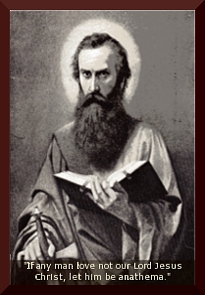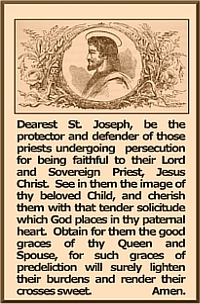July 19, 2017 – This section of an article by“Guy Fawkeslein”, is the first portion to be published on the web site Dominus Est. The translation from the Spanish is that of the admin of this blog. Please read our disclaimer at the end.
“The solemn funeral of Cardinal Joachim Meisner has not ceased giving us something about which to talk. He who for 26 years was the pastor of the pilgrim church in Cologne (Germany), died in the peace of the Lord at dawn on July 5 of this year, while according to witnesses, praying the liturgy of the Hours. His funeral was celebrated with the pomp due to a good Shepherd and to the sober propriety and attentiveness of German Catholicism, on July 15th in the Cathedral of the diocese of which he had been archbishop. His burial was presided over by the current Cardinal Archbishop, Monsignor Woelki, and the homily was delivered by Cardinal Péter Ërdo, Archbishop of Budapest, Primate of Hungary.
“More than a ceremony, per se, it was an aesthetic and profound burst of the mystery of God unfurled in the rites, gestures and symbols of which the Roman Catholic liturgy avails herself to express what we yearn for and which we can only gaze upon from behind the veils that cloak it. The ornaments used by the ministers were black with gilded embellishments to better express the “Passover” of Christ that we ourselves experience in the bitter moments before death. A power reaches us in the midst of drama, but it purifies us and gives us eternal life as we await the return of the glorified lord. The liturgy was perfectly orchestrated and its rites suitably fitted to the songs that clothed them. The music (works of Fauré or Mozart) interpreted by the orchestra and the choir, alternated in sublime song with the assembly making the walls of the cathedral to resound by the singing of those beautiful hymns that make Germanic piety and fervor unique. No doubt, Meisner not only had the death he wanted but the funeral his life deserved.
“But these factual details, I think you will have read elsewhere, and there is little or nothing that it can add. However, permit me to dwell on some aspects that occurred in the celebration, which alone, would have nothing special about them, but taken together, are quite eloquent.
“In the Gospel according to St. John, the Lord says that “if the grain of wheat does not fall on the ground and dies, it does not bear fruit, but if it dies it gives much fruit” (John 12:24). And indeed, the death of Cardinal Meisner has been the small grain that has made the plant to emerge, and which timidly, continues growing in the Church. It is none other than this: The blinders of fearful Catholics continue falling – of those who refuse to see the possibility of a quiet and noiseless schism that is being provoked by he who should be the bond of communion and who should confirm his brothers in the faith (cf. LC 22.32).
“First of all, let’s see who was on the left and on the right of the Presider of the celebration, and what role each one had. To the right of Cardinal Woelki, we saw the president of the German Episcopal Conference, Archbishop of Munich, Cardinal Reinhard Marx who has distinguished himself as one of the promoters of remarried divorcees having access to Holy Communion, as well as other misdeeds such as homosexual marriage and the female priesthood. To the left of the Presider, was the deposed Müller, who until a few days ago had been the Prefect for the Doctrine of the Faith; and at his side was the homilist, the Cardinal Archbishop of Budapest, Péter Ërdo, one of those who supported the four cardinals of the “Dubia”.presented to the pope, of which Meisner was one. Because of his connection and friendship, Cardinal Ërdo was responsible for pronouncing the homily at Meisner’s internment, but it was Müller who [gave the homily] on the fortieth anniversary of the episcopal ordination of Meisner. [There stood] two illustrious prelates closely linked by ties of friendship to Meisner, and who have not hesitated to make a common front together with him against the ‘sweetening’ that the faith is undergoing.
“Also, by reason of duty, among the principal concelebrants was the nuncio of His Holiness in Germany, Monsignor Nikola Eterovic, who read to those present. a message sent by Pope Francis to be read at the funeral. And here comes the second detail. In the burial of Meisner there were two interventions of significance: that of the Nuncio of His Holiness who read his message and that of the Archbishop, Secretary of Benedict XVI, Georg Gänswein, who did likewise for the one he represented. And I find it significant to note that the intervention of the first, which occurred at the beginning of the celebration, was met with a somber and terrible silence, as if what was being said were of little importance to the listener; whereas at the end of the celebration, when Gänswein finished his talk, the entire cathedral broke out with a most eloquent applause welcoming with feeling, the sincere words of his friend Joseph Ratzinger.”
“And the difference between the one and the other is more than well known to all. I will not be the one to says that the pope is glad of this death, because the mere thought seems petty and cruel, but with this demise, he now has one less rival. Who doubts it? We must remember that one of the four cardinals of the “dubia” was precisely Meisner, who, together with Brandmüller, Burke and Cafarra, presented it to the Pope back in September of 2016, and since they did not get an answer, they made their letter public in November of that same year, with the same result to date. Thus, Meisner left to the Father’s house with Francis’ disdain and contempt, the same that was shown to Müller when relieved of his office. And people with a certain Catholic sensibility “who were not born yesterday” (as we say in ancient Hispania), recognize words born of the heart as distinguished from the forced diplomacy that sees itself obligated to say what it should, when it is time, and how it must. And the words of Francis were born precisely from the latter.
“On the contrary, the words addressed to those present from the Emeritus Benedict XVI did not have the same effect. They were appreciated as caming from the heart of a dear friend of Meisner, a comrade of battles, a confidant without comparison. For this reason, the applause in the cathedral of Cologne was the most appropriate spontaneous reaction and, by the way of affection, the only possible one that should have been given. The Sensus fidelium again expressed itself in the Church.
“O Blissful Death of this pro-man [sic] of the once Catholic Germany, if it has resulted in the pastor Emeritus, silent and praying in the quietness of his life in “Mater Ecclesiae”, to again have loudly roared with strength as the Lion of Juda, so as to make his voice reach the ears of the sleeping Catholics of the entire world. Benedict has spoken again, and what words!”
___________________________________
Disclaimer: This is a translation only. This blog does not wholly concur with everything written, as for example, the kudos directed at Müller for making “a common front” in defense of the faith. By his own admission, Müller was of the opposite mindset. He, the obfuscating “defender” of the Faith, said, “And is not our task to unify, in a totalitarian way.”
But the article does opens up vistas to what is occurring in the Church. The main reason for this posting is to present it as the announcement the author intended: The revolution in the Church is going to end; sleeping dogs are awakening. Brace yourselves, and keep praying, especially those rosaries!
So it shall be!
Viva Cristo Rey!



